Important: The piston diameter can NOT be measured due to the piston coating. Do
NOT measure the piston diameter.
Important: Measurement of all components should be taken with the components at
room temperature.
Do not use a wire brush in order to clean any part of the piston.
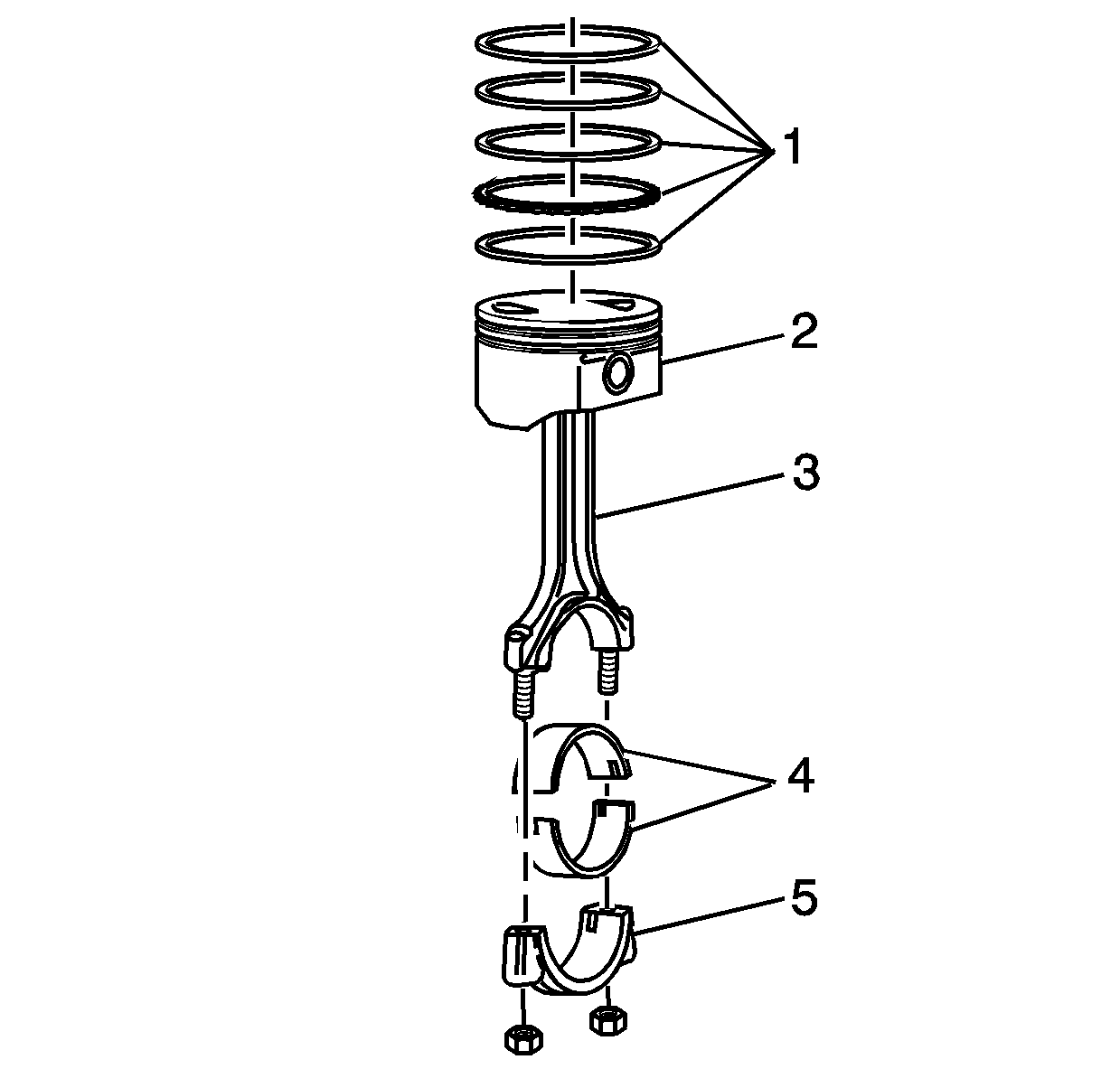
- Clean the piston (2),
connecting rod (3) and connecting rod cap (5) in solvent.
Caution: Wear safety glasses in order to avoid eye damage.
- Dry the components with compressed air.
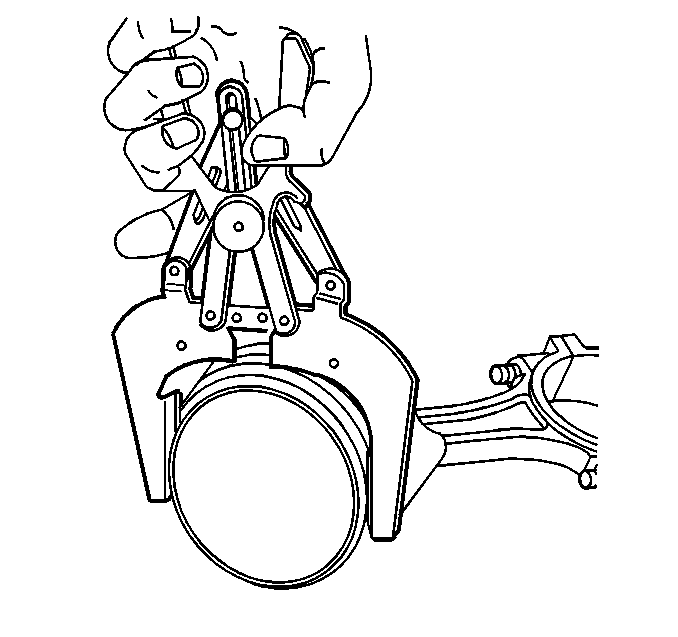
- Clean the piston ring
grooves with a suitable ring groove cleaning tool.
- Clean the piston oil lubrication holes and slots.
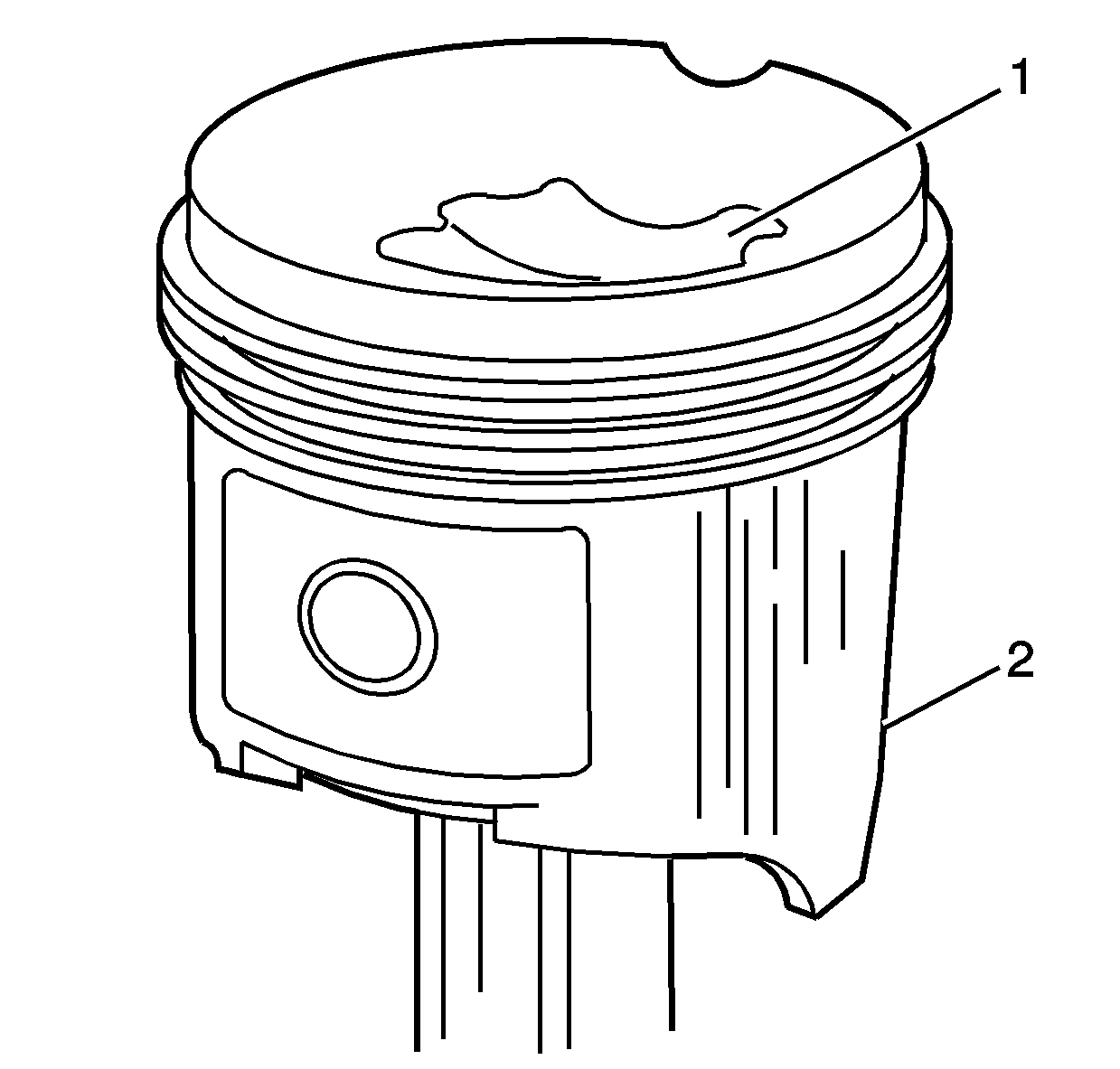
- Inspect the piston for the following conditions:
| • | Eroded areas (1) on the top of the piston |
| • | Scuffed or damaged skirt (2) |
| • | Cracks in the piston ring lands, the piston skirt, or the pin
bosses |
| • | Piston ring grooves for nicks, burrs, or other warpage which may
cause the piston ring to bind |
- Inspect the piston pin for scoring, wear or other damage.
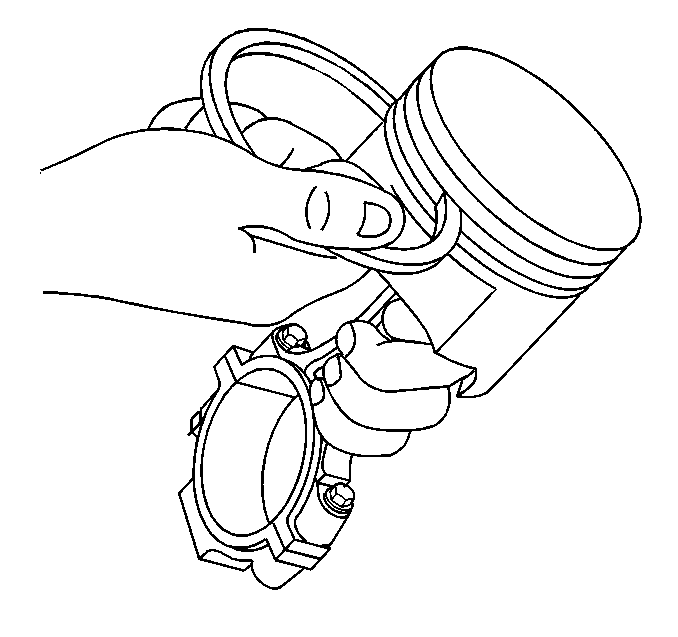
- Measure the piston ring-to-piston
ring groove side clearance. Refer to
Engine Mechanical Specifications
.
| 7.1. | Insert the edge of the piston ring into the piston ring groove. |
Roll the piston ring completely around the piston.
| 7.2. | If binding is caused by a distorted piston ring groove, MINOR
imperfections may be removed with a fine file. |
| 7.3. | If binding is caused by a distorted piston ring, replace the piston
ring. |
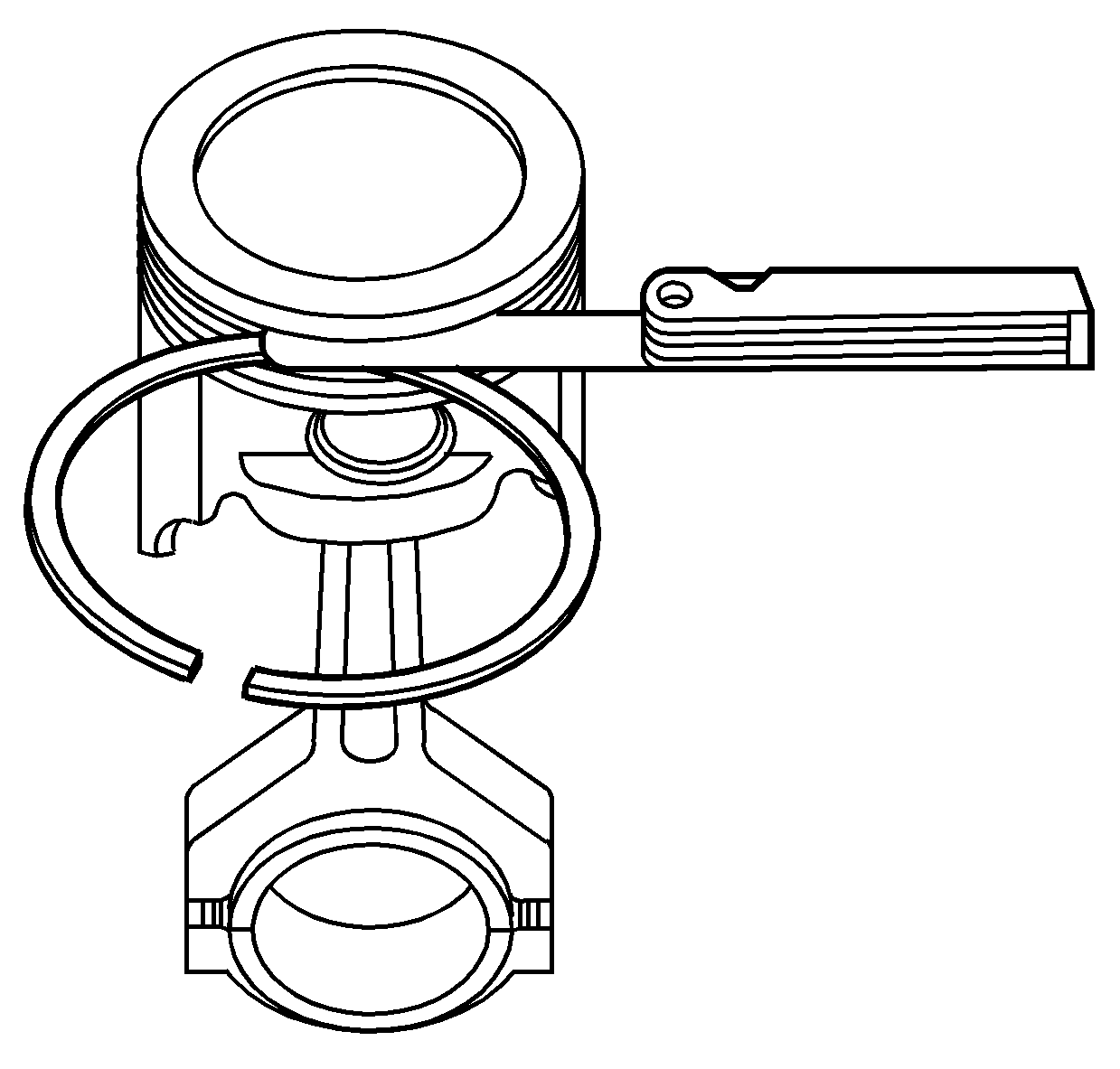
- Measure the piston ring
side clearance with a feeler gage.
- If the side clearance is too small, try another piston ring set.
Refer to
Engine Mechanical Specifications
.
- If the proper piston ring-to-piston ring groove clearance cannot
be achieved, replace the piston and pin assembly.
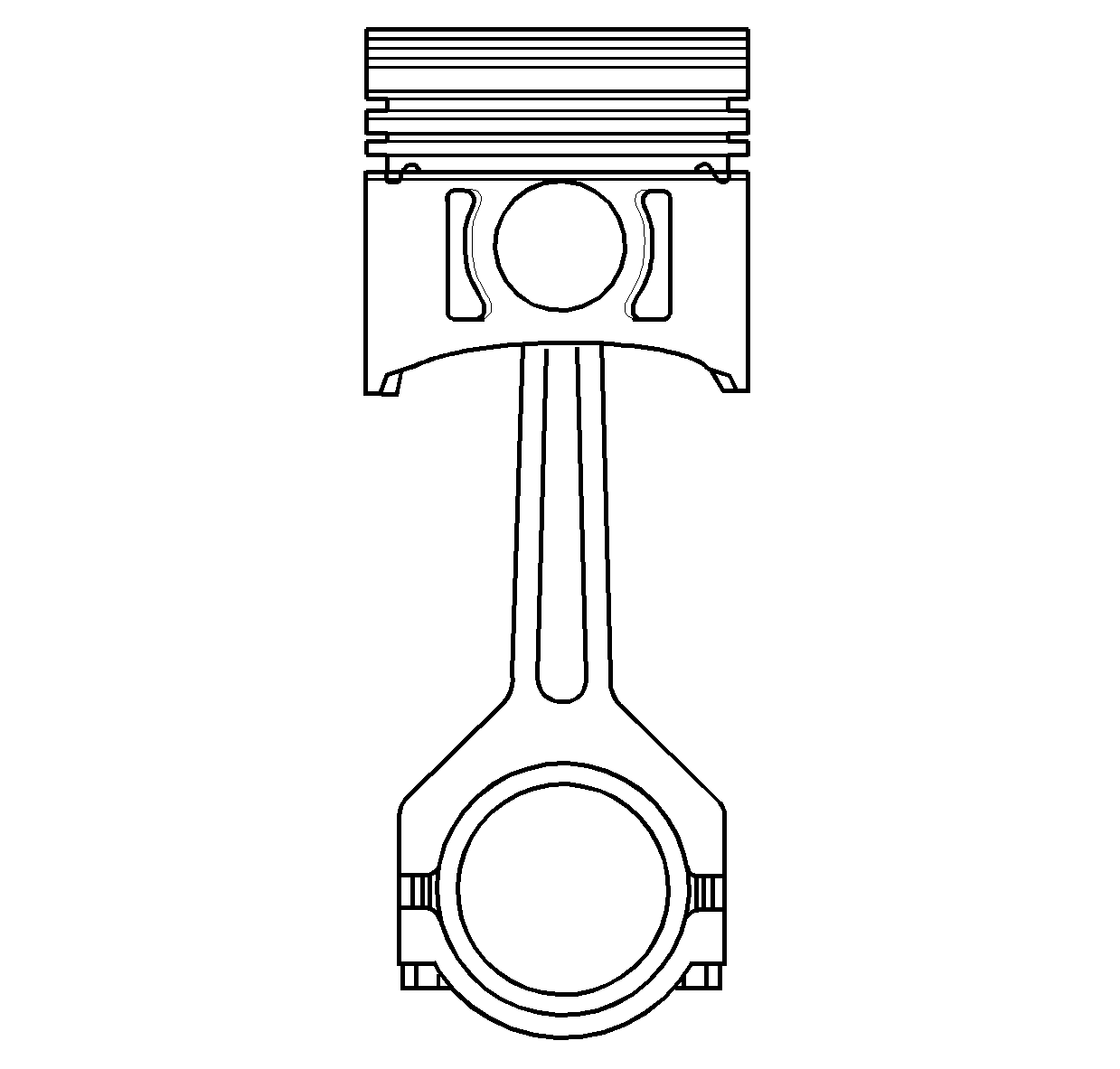
- Inspect the connecting rod for an out-of-round bearing bore.
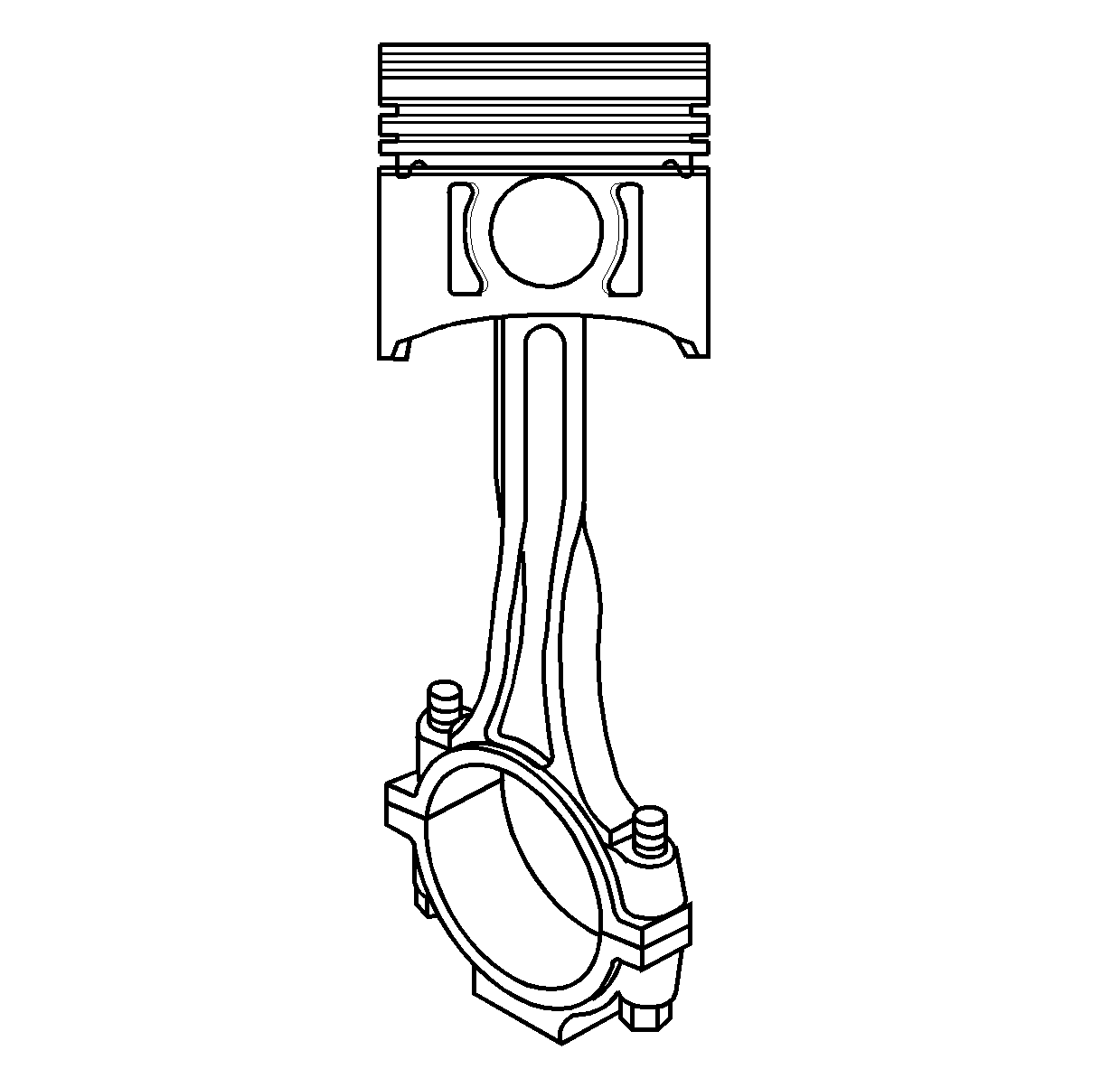
- Inspect the connecting rod for twisting.
- Inspect the connecting rod for damage to the connecting rod bolt
threads.
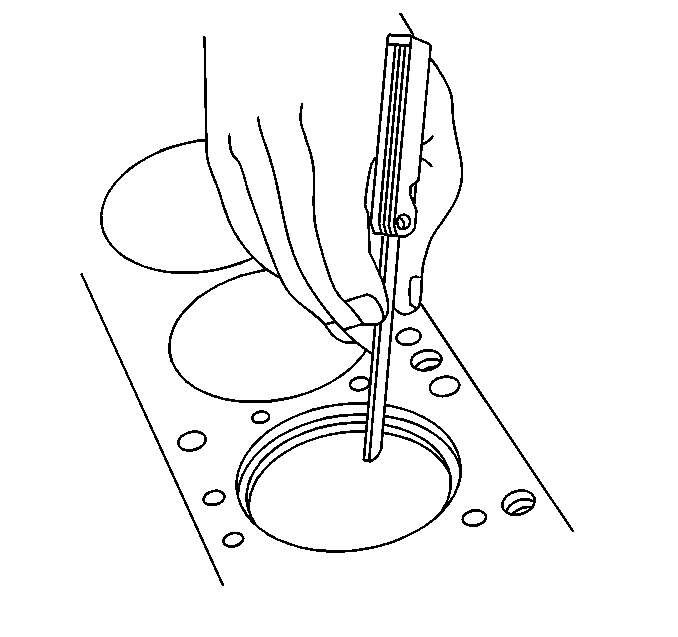
Important: Fit each compression ring to the cylinder in which it will be used.
- Measure the piston compression ring end gap.
| 14.1. | Place the compression ring into the cylinder bore. |
| 14.2. | Push the compression ring into the cylinder bore to approximately
6.5 mm (0.25 in) above the ring travel. |
The ring
must be square to the cylinder wall.
| 14.3. | Use a feeler gage in order to measure the end gap. |
| 14.4. | Select another size ring set if the end gap exceeds specifications. |








